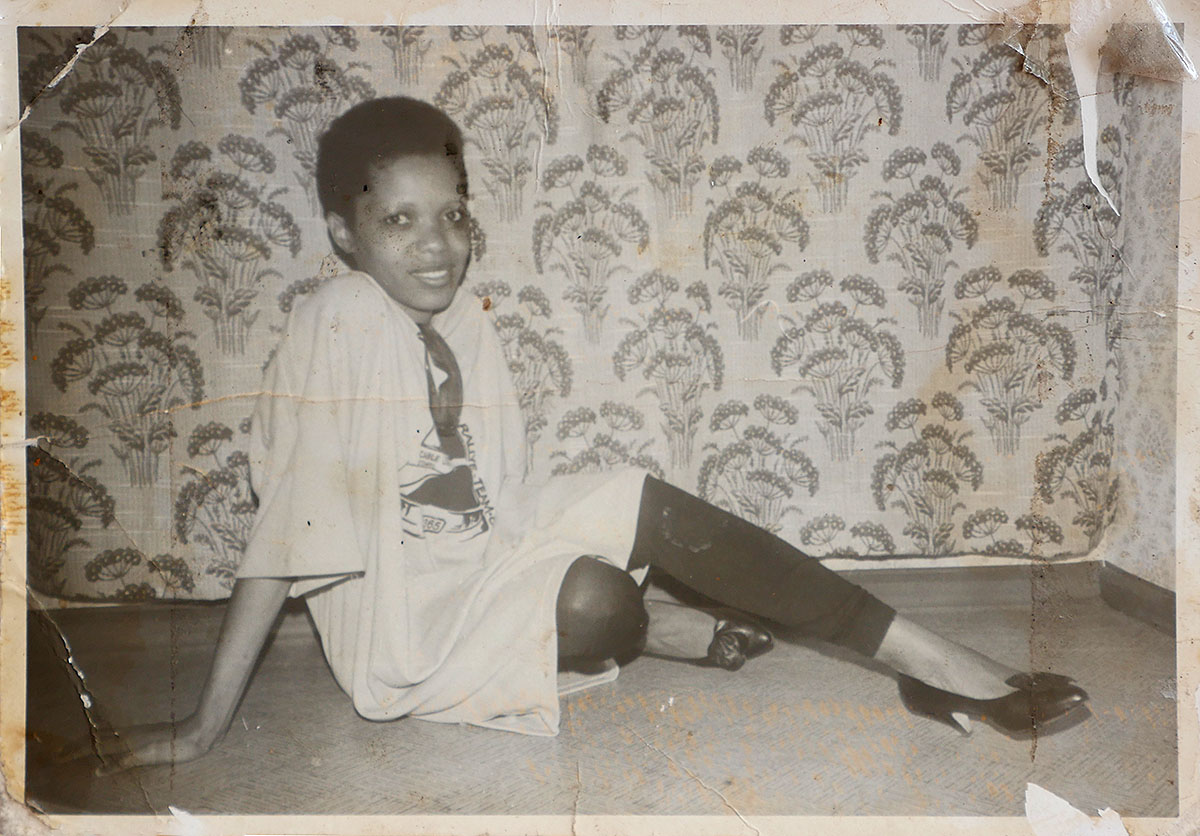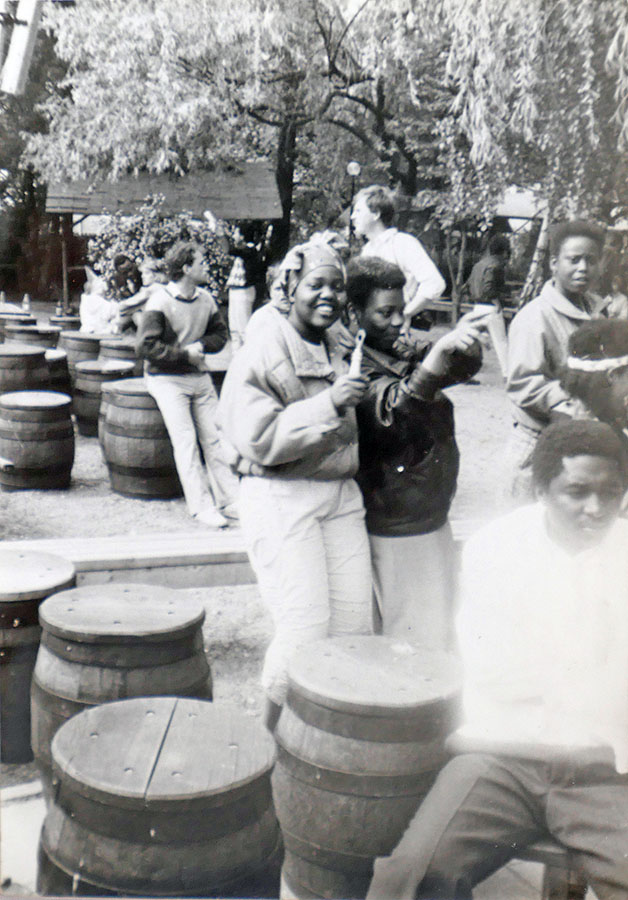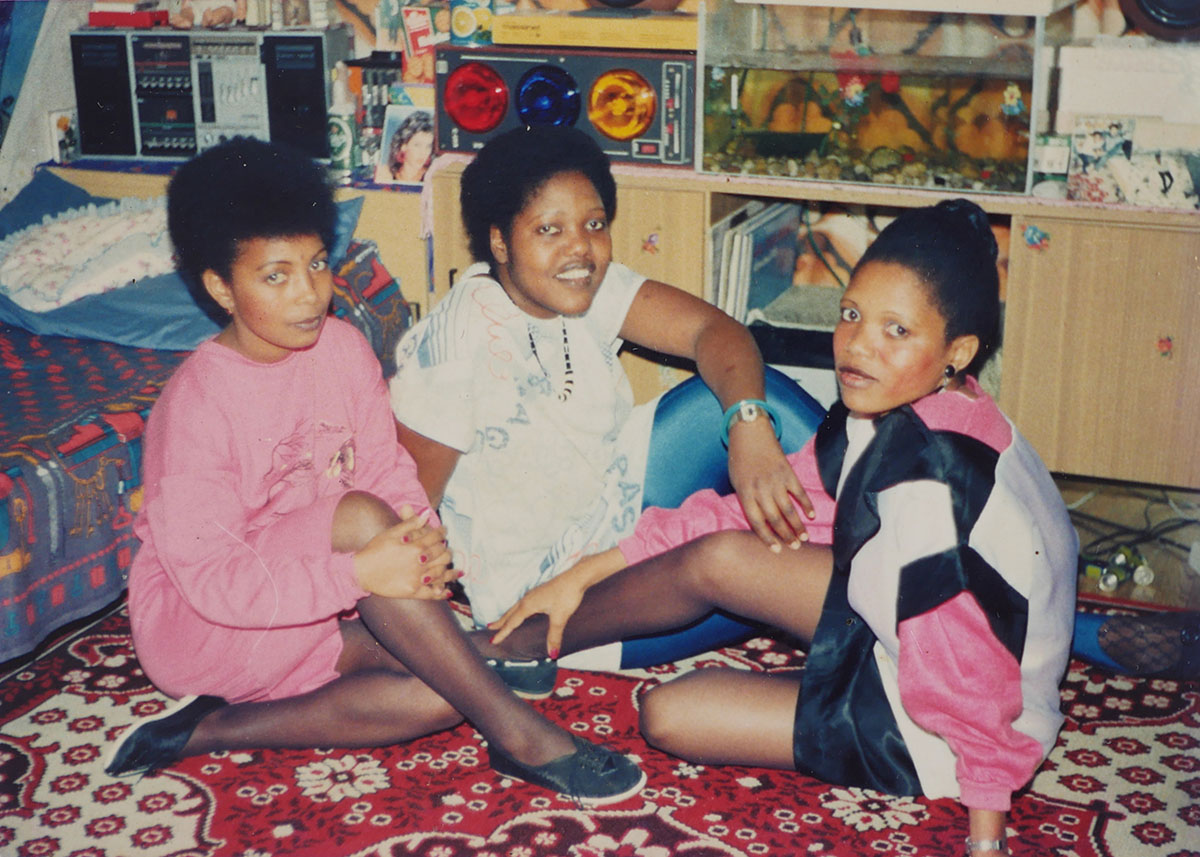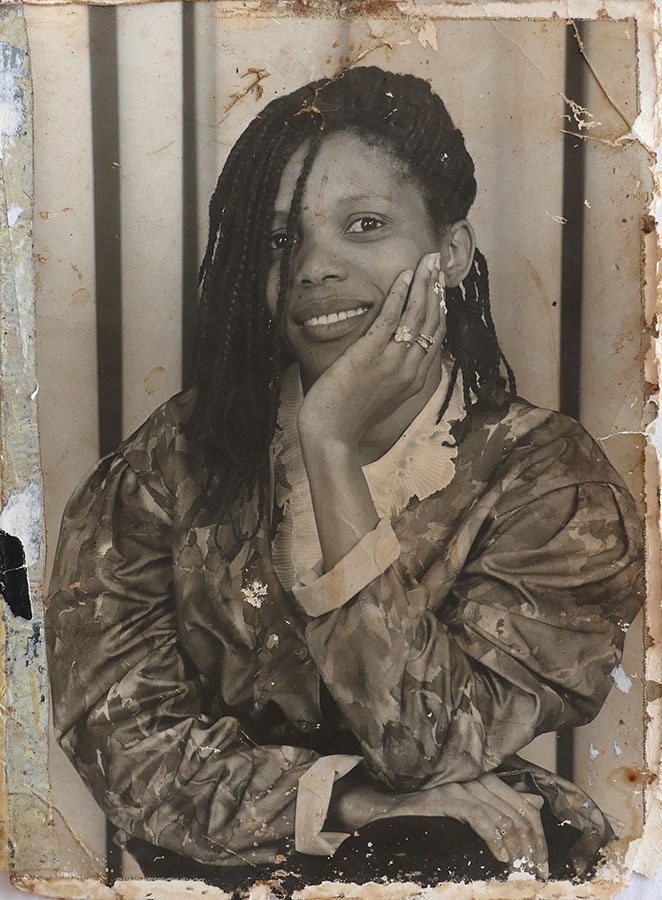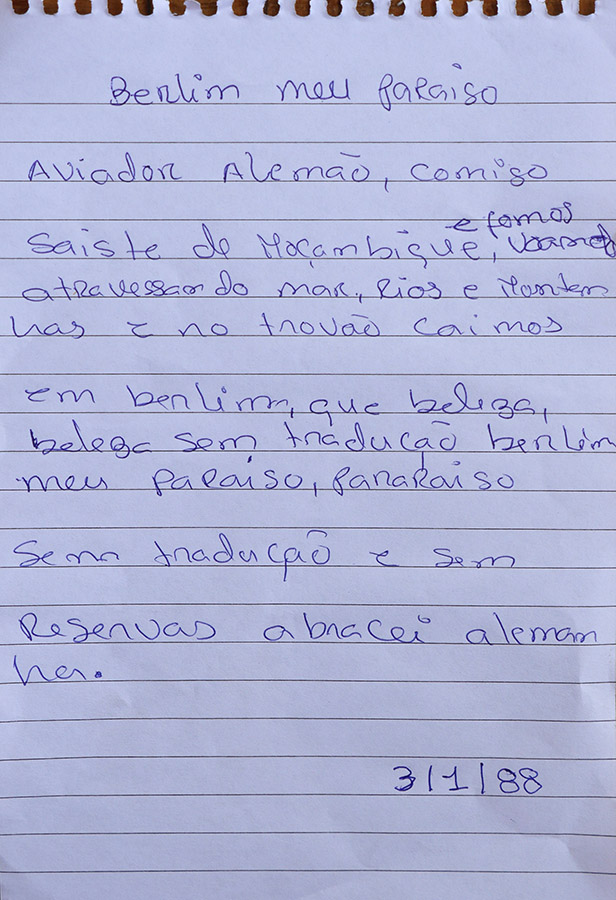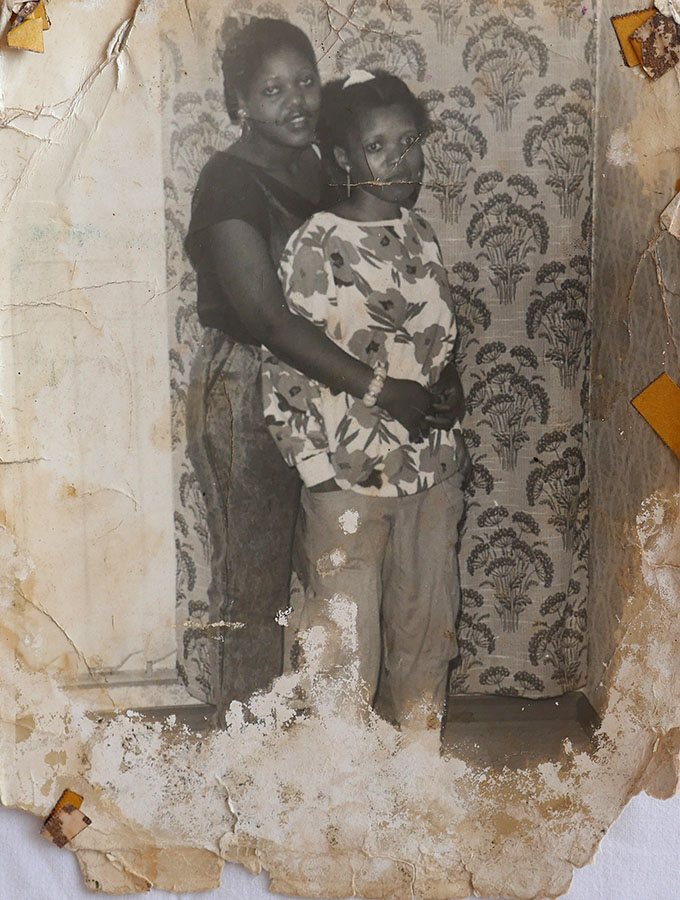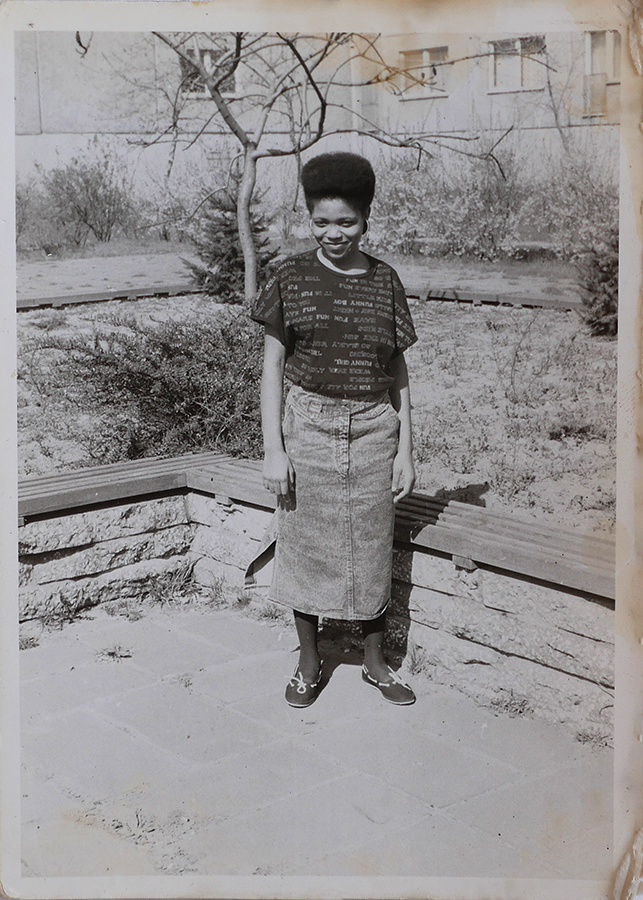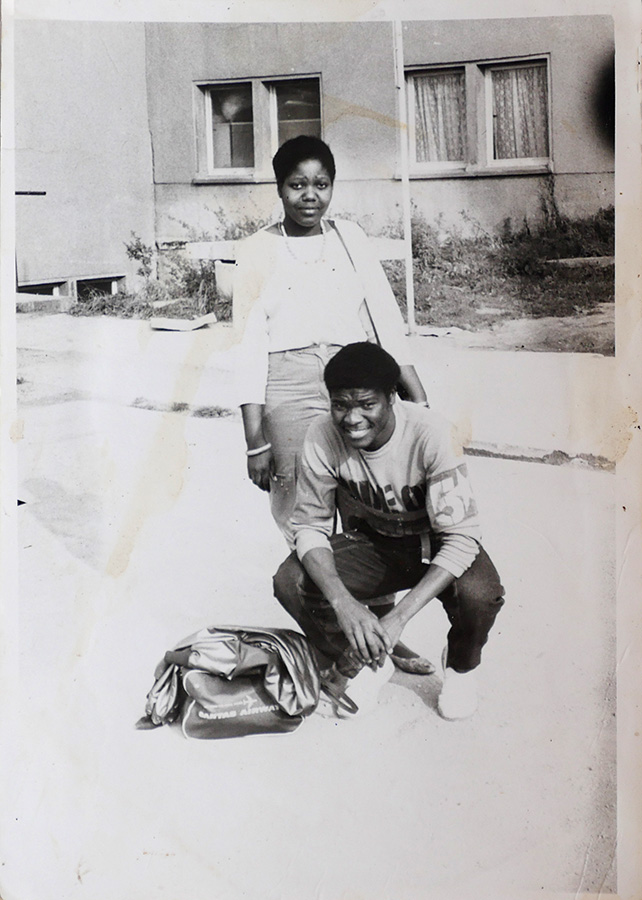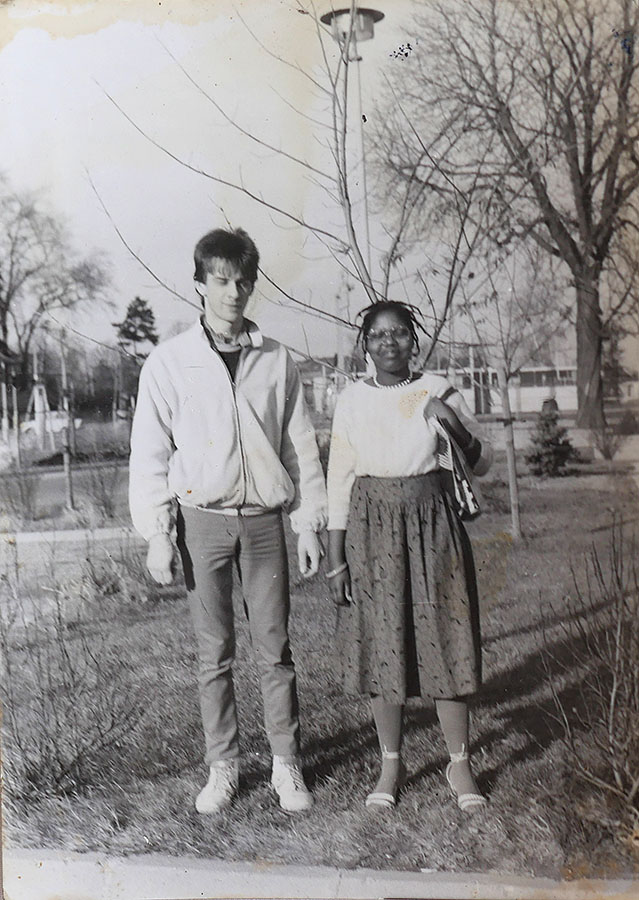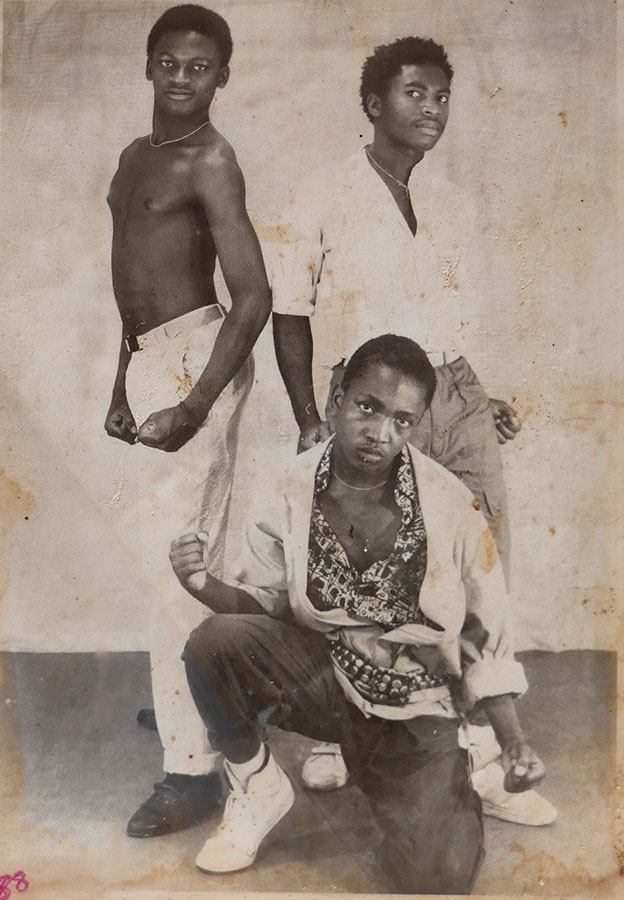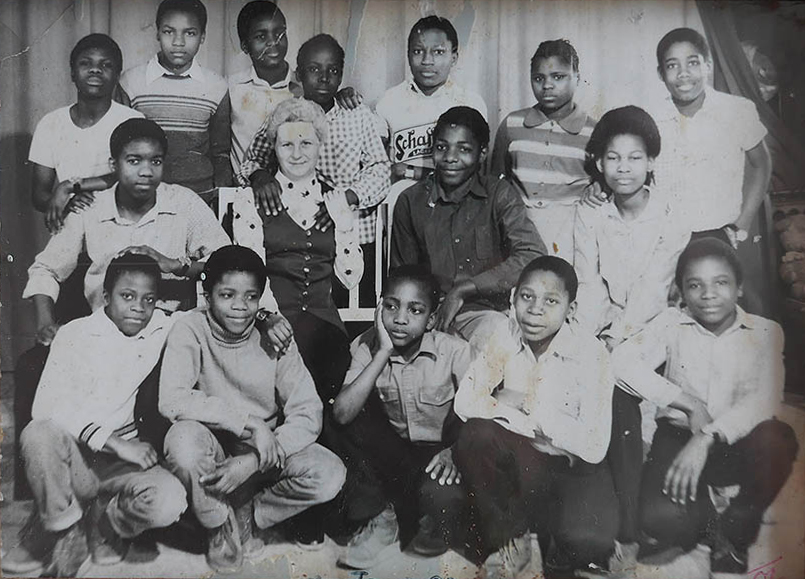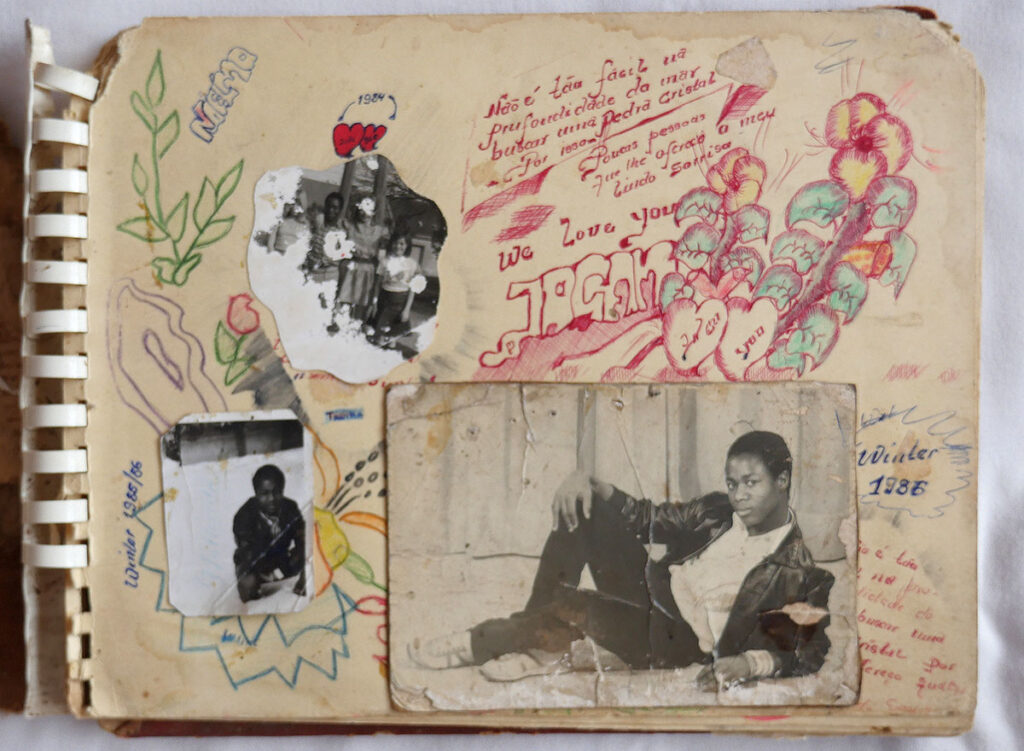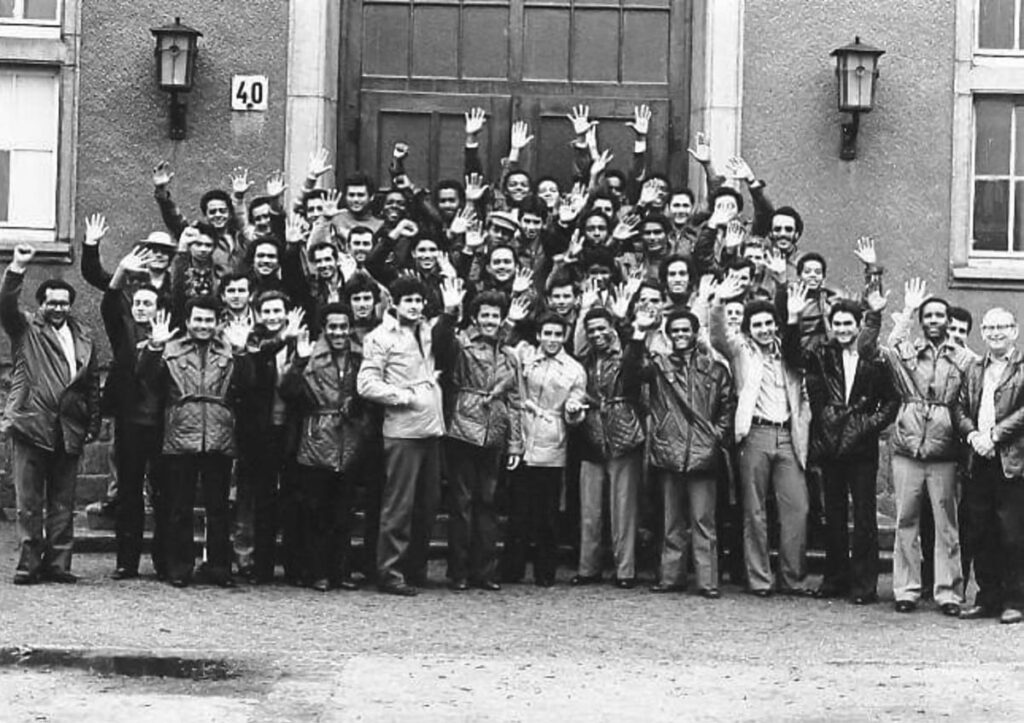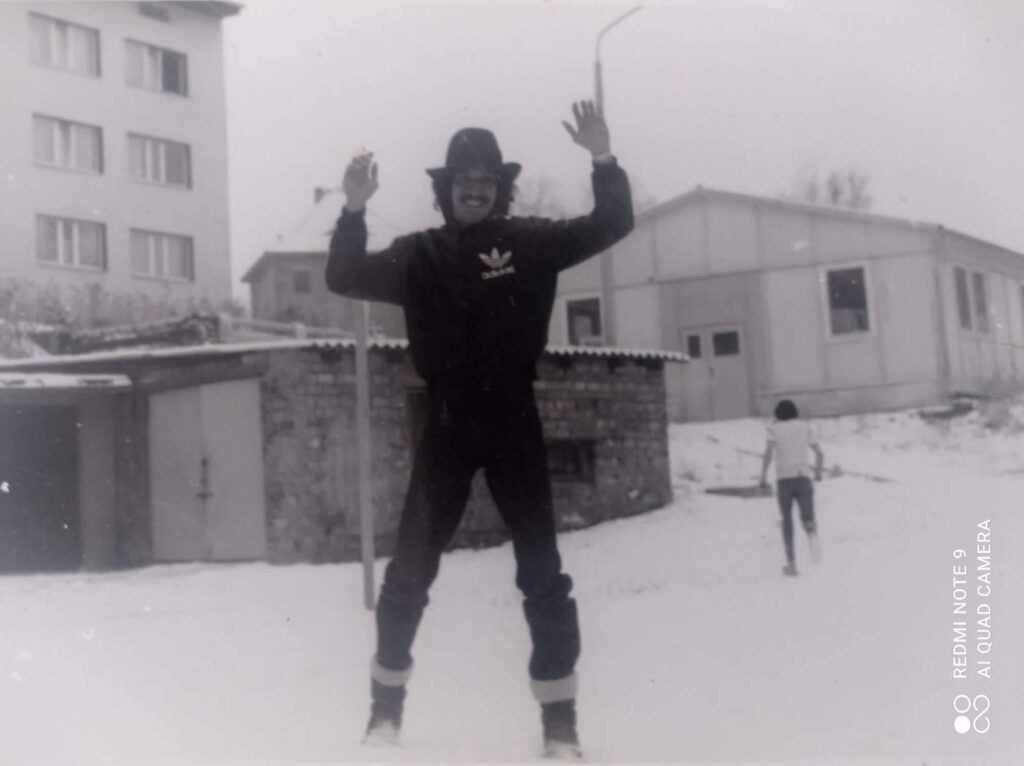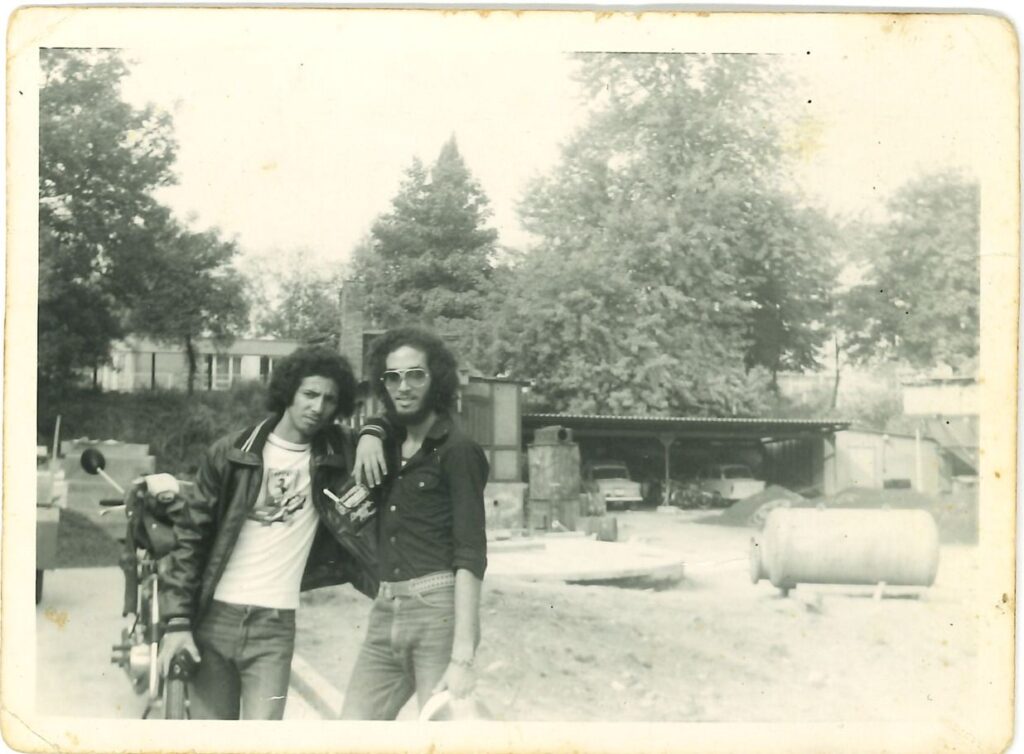Regina Veracruz
Regina Veracruz works for two years as a contract worker at the VEB Fotochemisches Kombinat (Photochemical Combine) Wolfen. On weekends she visits her cousin in Berlin and goes dancing in a discotheque on Alexanderplatz. She is a big fan of Milli Vanilli.
School during civil war
Veracruz is the youngest of ten children from a humble family in the south of Mozambique. Following her parents’ separation, mainly her older siblings take care of her. Her school days are defined by the civil war.[1] When class is over in the evening, the students often cannot go home due to imminent attacks, and must spend the night at school. Under these circumstances attending school is no longer an option. She leaves school after eighth grade. Most of the women around her are married, and she observes their lives as wives. She wants something different.
I want to be an independent woman. I want to work and buy a car and drive to places where I can dance.
Regina Veracruz, Maputo 2021
Regina Veracruz is very close to her older brother Justino. He is interested in culture and travels a lot. With him, she attends dance events, takes lessons and becomes an enthusiastic dancer herself. Justino tells her about the possibility of going to Germany. She is immediately interested, applies and organizes all the paperwork. On 3 January 1988 she sits on a plane to East Berlin. Only a few days after her arrival, she writes the following poem:
Berlin, my Paradise
German pilot, with me you left Mozambique.
We flew over the sea, rivers and mountains.
In a thunderstorm we landed in Berlin.
How beautiful, how beautiful, an incredible beauty.
Berlin my paradise, paradise
Without translation, without reservation, I embraced Germany.
The first photo in Germany shows Regina with her cousin Diolinda, who has already been living in Berlin as a contract worker for some time. In the picture she wears new clothes that she bought in East Germany. But her hairdo is still “Mozambique style”, as she herself says. This changes a few months later. Short hairstyles are very popular among the contract workers from Mozambique. So are high heels. She doesn’t want to wear flat shoes, she says: “It’s not elegant. I always aimed for elegance.”
Doing laundry is no profession
During their first days the new arrivals are medically examined. “We were not used to getting naked, that too meant war for us,” Regina Veracruz remembers. During the examination, it is discovered that she needs to be treated in hospital. She stays in Berlin and doesn’t arrive until a few weeks later at her work place in Wolfen There the Mozambican women are required to work in a laundry. But the women resist, they want to learn a trade. In their eyes, doing laundry is not a profession. Together they complain to the responsible authorities in Berlin and succeed. From then on they work in the VEB Fotochemisches Kombinat Wolfen.
The contract workers are accommodated in a residential home outside the city. It is quiet and rather boring. Regina and her friends use every opportunity to visit acquaintances in other cities. Particularly close are the contacts to colleagues from Cuba.
I love Germany, but there are two thing I don’t like: the cold and skinheads.
Regina Veracruz, Maputo 2021
During weekend trips, the Mozambicans are increasingly exposed to racist hostility and attacks. At train stations, in trains or even in the disco, especially the men are threatened and assaulted by skinheads. Cubans and Mozambicans fight back together. “We didn’t call each other friends, but cousins,” Regina Veracruz recounts. After football matches the situation is most threatening. During the 1990 World Cup, she and her colleagues do not leave the house when Germany is playing.
Regina Veracruz talks about racist attacks and retaliation.
Berlin nightlife
Regina Veracruz enjoys her Berlin outings to a large discotheque on Alexanderplatz. The international crowd and music selection there fascinate her. After the Wall opens in 1989, she can also visit the West. A friend takes her to Munich. She has always been interested in fashion and styling, and is overwhelmed by the trends on display there. She changes her outfit. Her great role model is the band Milli Vanilli, she gets hair extensions and applies make-up like her idols.
Return and the [ongoing] fight for wages
For Regina Veracruz and her colleagues, the time of transition in Germany signifies a premature departure for Mozambique. The returnees have stereos, color TVs and the latest fashion in their luggage. In Maputo they are called “Majermane”«, that is, “those Germans”. However, their small prosperity only lasts a short time. In vain they wait for the wages they earned in the GDR. Up to 60 percent of their wages were withheld by the state. They were told that the money would be paid upon their return to Mozambique.
But they don’t get their money. Together with her former colleagues Regina Veracruz is active in various organizations, and fights for the money. To this day, the “Majermanes” demonstrate weekly in Maputo — so far without success.(2)
For Regina Veracruz her East German memories are closely linked to her international colleagues and friends.
Regina Veracruz sings a song for her friends in Germany.
For several years Regina Veracruz lived in South Africa, today she resides in Maputo, Mozambique.
Credits:
Catarina Simão conducted the interview in Maputo in 2021.
Text: Julia Oelkers
Research and research protocol photos: Catarina Simão, Julia Oelkers
Video edting concept: Julia Oelkers
Footnotes:
- The Mozambican Civil War began two years after Mozambique had achieved independence from Portugal in 1977, and lasted until 1992. At that time the Frente de Libertação de Moçambique (FRELIMO), which had successfully spearheaded the War of Independence, was the ruling party in Mozambique. Since 1977 the FRELIMO and the Rhodesia-backed insurgent forces of the Resistência Nacional Moçambicana (RENAMO) engaged in conflict. Founded in Rhodesia, RENAMO was later military and logistically supported by the apartheid regime in South Africa. What began as a destabilization war against socialist-oriented Mozambique soon developed into a long-lasting civil war that was almost unparalleled in its brutality at the time. Elisio Macamo, Lothar Berger: Kriegen und Konflikte: Mosambik https://www.bpb.de/themen/kriege-konflikte/dossier-kriege-konflikte/54793/mosambik/
- For more information on the conflict over the wages of Mozambican contract workers go to: Contract workers become Madjermanes https://bruderland.de/background/vertragsarbeiterinnen-und-madgermanes/
